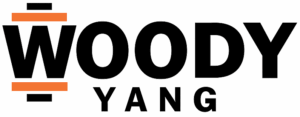The echoes of the digital music revolution still resonate through the industry, particularly the seismic shock delivered by Napster in the late 1990s. That era fundamentally reshaped how music was consumed and valued, forcing a reckoning with copyright in the digital age. Fast forward two decades, and the music world finds itself staring down another disruptive force: Artificial Intelligence. This time, the battle isn’t just about distribution; it’s about creation, or more accurately, how AI models are trained to create. At the heart of the brewing storm are lawsuits filed by major record labels against prominent AI music generators like Suno and Udio, igniting a fierce debate over whether feeding copyrighted songs into machine learning algorithms constitutes theft or falls under the legal umbrella of “fair use.” The stakes are incredibly high, prompting many to ask if AI is destined to be the music industry’s next Napster – a technology that fundamentally challenges existing power structures and economic models, potentially leaving creators in the lurch. This isn’t merely a legal squabble; it’s a foundational conflict over the future value and ownership of music itself.
The legal challenges brought by the music industry aren’t pulling punches. Labels accuse companies like Suno and Udio of blatant copyright infringement, arguing that using their vast catalogs of protected works to train AI models is a clear violation. What’s particularly striking is the reported admission by both Suno and Udio in court documents that they did, in fact, train their systems on copyrighted material. Their defense hinges on the controversial concept of “fair use” – a legal doctrine that permits limited use of copyrighted material without obtaining permission from the rights holders, typically for purposes such as criticism, comment, news reporting, teaching, scholarship, or research. However, applying this to the wholesale ingestion of millions of songs for commercial AI training is a contentious interpretation, to say the least. The industry’s argument is straightforward: without the input of human-created, copyrighted music, these AI models wouldn’t be able to generate anything remotely resembling music as we know it. They contend that this is not merely learning or research in a traditional sense, but rather the appropriation of artistic labor and intellectual property on an unprecedented scale, effectively using the foundation built by generations of musicians to build a new, potentially competitive, creative engine.
Amidst this legal firestorm, an alternative, arguably more sustainable, path is being discussed and, in some corners, already implemented: licensing. Unlike the “move fast and break things” approach often seen in tech, some argue that the music industry’s existing infrastructure for copyright and collection provides a ready-made framework for AI integration. Individuals like Kuok of the BandLab recording app, which features its own AI tool SongStarter, advocate strongly for licensing music for AI training, emphasizing the critical need to ensure musicians are fairly compensated. This isn’t a completely novel idea. Ed Newton-Rex, formerly a vice president at Stability AI, revealed that during his tenure working on AI music systems since 2010, licensing was the standard practice. He even publicly resigned from Stability AI when the company adopted the stance that training on copyrighted data was “fair use.” The fact that Suno and Udio are reportedly now in discussions with major labels regarding licensing suggests a potential pivot towards this model, recognizing that a purely adversarial approach may not be viable or desirable long-term. A licensing framework could offer a route for artists and labels to participate financially in the AI music revolution, turning a potential threat into a new revenue stream, while providing AI developers with legally sound and transparent training data.
However, implementing a comprehensive licensing system presents its own complex challenges. How would royalties be tracked and distributed when an AI model might draw influence from countless sources? Would it be based on the input data, the output generated, or a combination? Furthermore, the rise of AI music raises profound questions about artistic value and the creative landscape. Could a flood of easily generated, algorithmically optimized tracks devalue human-created music? Will listeners be able to distinguish, or will they care? There’s also the potential impact on emerging artists struggling to be heard; will they now have to compete with an endless stream of AI-generated content? Conversely, ethical AI tools designed with creators in mind, like BandLab’s SongStarter, demonstrate the potential for AI to assist human creativity, providing starting points or inspiration rather than attempting to replace the artist entirely. The key seems to lie in developing AI as a collaborative tool, augmenting human ability, rather than a black box trained on uncompensated labor, poised to become a direct competitor.
The current clash between the music industry and AI developers feels eerily similar to the precipice the industry faced with digital file sharing decades ago. While the technology is different – creation versus distribution – the core tension remains: how to navigate disruptive innovation while respecting and compensating the creators whose work forms the very foundation upon which this innovation is built. The outcome of the current legal battles and licensing negotiations will set precedents that will shape the music landscape for years to come. Will the industry successfully leverage its existing IP framework to integrate AI in a way that benefits creators, or will this turn into another prolonged, value-eroding conflict? The future of music in the age of AI hinges on finding a harmonious balance – one that fosters technological advancement without silencing the human voice that has always been music’s heart. The challenge is immense, but the opportunity, if handled ethically and equitably, to unlock new forms of creativity and distribution is equally vast.












